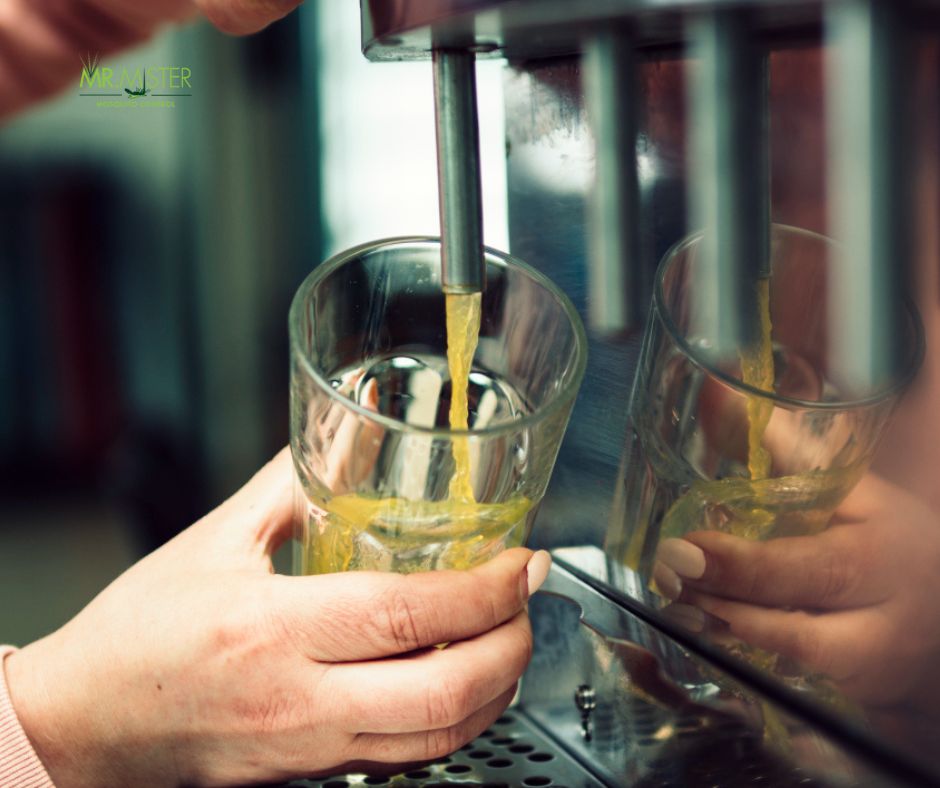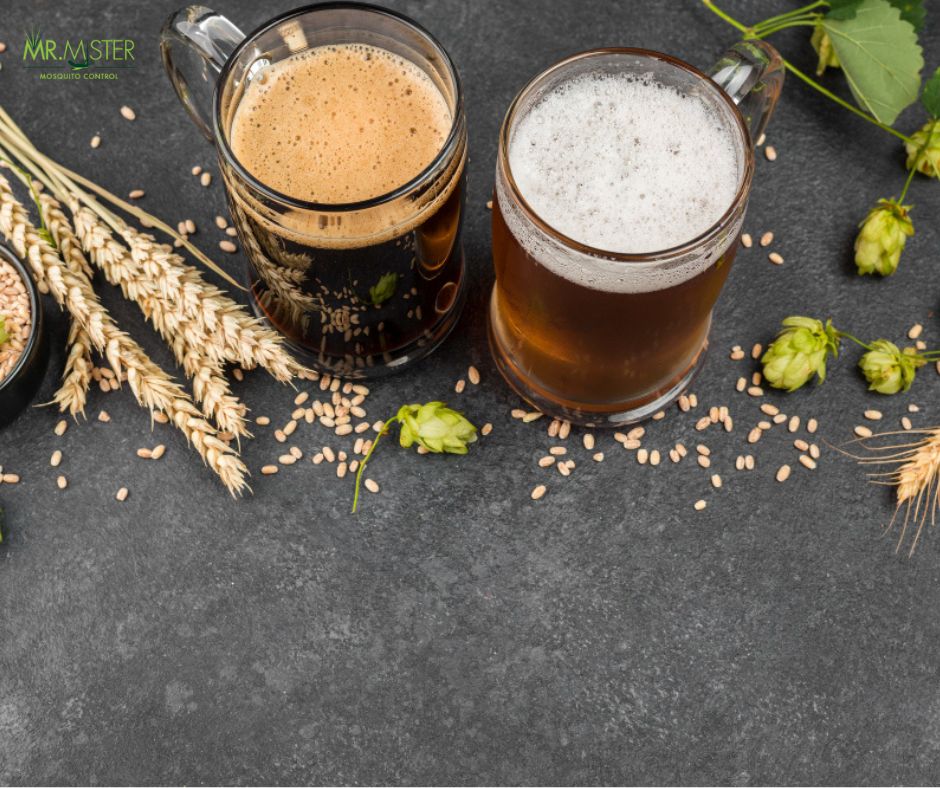Brewing Protection: Can Beer Really Repel Mosquitoes?
Mosquitoes, those pesky blood-sucking insects, are an unwelcome presence in many parts of the world. As warmer seasons arrive, the quest for effective mosquito repellents becomes a priority for outdoor enthusiasts and those living in mosquito-prone areas. While traditional repellents often contain chemical ingredients, a curious theory has emerged – the potential mosquito-repelling properties of beer. But can beer really keep these bothersome insects at bay? In this article, we will explore the science behind this claim and whether beer can be a viable mosquito deterrent.
The Theory
The theory proposing beer as a mosquito repellent is based on the belief that specific components within the beverage possess natural deterrent properties. One key element is carbon dioxide, a gas naturally expelled by humans during respiration. Advocates of this theory posit that the increased production of carbon dioxide resulting from beer consumption could create an atmosphere that repels mosquitoes. These insects are attracted to carbon dioxide as it serves as a sign of potential hosts for their blood-feeding activities. The idea is that the elevated carbon dioxide levels mask the scent of potential hosts, making the beer drinker less appealing to mosquitoes.
Furthermore, the aromatic profile of beer is considered by some as another potential mosquito deterrent. The unique combination of scents arising from the beer’s ingredients, particularly hops, could create an olfactory environment that mosquitoes find unpleasant. However, it’s important to note that the concentrations of these aromatic compounds in beer may be insufficient to deliver a strong and lasting mosquito-repelling effect. Scientific research on the correlation between beer aroma and mosquito behavior is limited, requiring further investigation to validate or disprove this aspect of the theory.
Carbon Dioxide Emission
Carbon dioxide emission plays a pivotal role in the theory proposing beer as a mosquito repellent. The logic behind this aspect of the theory lies in the fact that humans naturally exhale carbon dioxide during the respiratory process. Mosquitoes, being highly sensitive to carbon dioxide, are attracted to it as a signal of potential hosts for their blood-feeding activities. When individuals consume beer, the theory suggests that this leads to an increase in carbon dioxide emissions, creating an environment where mosquitoes might be diverted away from the beer drinker.
The premise is rooted in the idea that the heightened levels of carbon dioxide produced during beer consumption could act as a smokescreen, masking the scent of the individual and making them less attractive to mosquitoes. In theory, this increased carbon dioxide emission creates a scenario where the mosquitoes, drawn to the higher concentrations of the gas, are less likely to identify and target the beer drinker as a suitable blood source.
Aroma and Ingredients
The aromatic qualities of beer, particularly those derived from its ingredients like hops, constitute another facet of the theory suggesting beer as a potential mosquito deterrent. Hops, known for their distinct and often pungent aroma, are believed by some to create an olfactory environment that mosquitoes find unappealing. Proponents argue that the combination of various scents produced during the brewing process could act as a deterrent, making the beer drinker less attractive to mosquitoes.
Despite the intriguing proposition, the scientific evidence supporting the claim that beer aromas effectively repel mosquitoes is currently limited. While it is well-established that certain scents can deter insects, including mosquitoes, the concentrations of these aromatic compounds in beer may not be potent enough to provide reliable mosquito protection. The complexity of mosquito olfactory responses and the variety of scents present in outdoor environments further complicate the assessment of beer’s efficacy as a natural mosquito repellent.
Yeast and Beer
Yeast, a vital element in the fermentation process of beer, has been proposed by some as having potential mosquito-repelling properties. The logic underlying this aspect of the theory is rooted in the fact that yeast generates carbon dioxide as a byproduct during the fermentation of beer. Given that mosquitoes are highly attracted to carbon dioxide as a signal of potential blood hosts, the theory suggests that the carbon dioxide produced by yeast during beer fermentation could act as a natural deterrent to these pesky insects.
While the production of carbon dioxide by yeast is well-established, there is a notable lack of conclusive evidence demonstrating the effectiveness of yeast itself as a mosquito deterrent. The intricate interplay between various factors influencing mosquito behavior, the concentrations of carbon dioxide emitted during fermentation, and the specific response of mosquitoes to yeast remains an area that requires more in-depth scientific investigation.
Scientific Perspective
Despite the fascinating theories proposing beer as a mosquito repellent, the scientific community maintains a skeptical stance. The limited research on this specific topic, coupled with the often insufficient methodology and statistical significance of available studies, has led scientists to approach these claims with caution. The concentration of carbon dioxide emitted during beer consumption, while theoretically linked to mosquito diversion, is likely to be too low to produce a noticeable deterrent effect.
Studies investigating the aromatic compounds in beer and their impact on mosquitoes also face challenges. The concentrations of these compounds may not reach levels that effectively repel mosquitoes, and the complex interplay of scents in outdoor environments further complicates the assessment of beer’s efficacy as a mosquito deterrent. Scientifically robust evidence supporting the notion that beer can reliably repel mosquitoes is currently lacking.
Practical Considerations
While the idea of using beer as a standalone mosquito repellent may be intriguing, it is essential to consider practical aspects when seeking effective protection against these bothersome insects. Outdoor activities, especially in warm and humid climates, often involve various factors that can attract mosquitoes. Among these factors are body heat and sweat, which are known to be significant attractants for mosquitoes.
Additionally, the consumption of alcohol, as in the case of beer, introduces certain considerations. While enjoying a cold beer outdoors may seem like a pleasant way to relax, it’s crucial to recognize that alcohol can affect an individual’s judgment and awareness. Impaired decision-making and reduced alertness may lead to increased susceptibility to mosquito bites, as individuals may be less vigilant in taking necessary precautions, such as applying conventional mosquito repellents or using protective clothing.
Conclusion
In the quest for effective mosquito protection, it appears that beer alone may not be the magic solution. While the theories surrounding carbon dioxide, aroma, and ingredients are intriguing, scientific evidence supporting beer as a reliable mosquito repellent is lacking. Traditional mosquito repellents, with proven active ingredients, remain the most reliable option for those seeking effective protection against these blood-thirsty insects. As research continues, it is essential to approach claims about alternative mosquito repellents with a critical eye and prioritize solutions backed by sound scientific evidence.
For expert advice on mosquito protection and effective repellents, feel free to contact professionals at Mr. Mister Mosquito Control. We can provide valuable insights and recommend scientifically proven methods to keep mosquitoes at bay. Your health and well-being deserve a comprehensive approach to mosquito prevention, and the our experts at Mr. Mister Mosquito Control can guide you with reliable solutions.
FAQs
Is there any scientific basis for the theory that beer can repel mosquitoes?
While the theory proposing beer as a mosquito repellent suggests that carbon dioxide emissions and aromatic compounds in beer may deter mosquitoes, scientific evidence supporting this claim is currently limited. Further research is needed to validate or disprove these aspects of the theory.
How does carbon dioxide emission relate to the theory of beer repelling mosquitoes?
Carbon dioxide emission is a key element in the theory. It suggests that the increased production of carbon dioxide during beer consumption may create an environment where mosquitoes are less likely to identify and target the beer drinker as a suitable blood source.
What role do aromatic compounds, particularly from hops, play in the theory?
The theory proposes that the unique combination of scents from beer, especially those derived from ingredients like hops, could create an olfactory environment that mosquitoes find unpleasant. However, scientific evidence supporting the effectiveness of beer aromas in repelling mosquitoes is currently limited.
Does yeast in beer have mosquito-repelling properties?
Yeast generates carbon dioxide during beer fermentation, and the theory suggests that this could act as a natural deterrent to mosquitoes. However, conclusive evidence demonstrating the effectiveness of yeast itself as a mosquito deterrent is lacking, and further scientific investigation is needed.
What is the scientific community’s perspective on beer as a mosquito repellent?
The scientific community maintains a skeptical stance, citing limited research, insufficient methodology, and statistical significance in available studies. The concentration of carbon dioxide emitted during beer consumption may be too low to produce a noticeable deterrent effect, and robust evidence supporting beer as a reliable mosquito repellent is currently lacking.
Are there practical considerations when using beer as a mosquito repellent?
While the idea is intriguing, practical aspects must be considered. Outdoor activities often involve factors that attract mosquitoes, such as body heat and sweat. Additionally, the consumption of alcohol can impair judgment and awareness, leading to increased susceptibility to mosquito bites. It’s crucial to take necessary precautions, such as using conventional mosquito repellents and protective clothing.
* Schedule a Free Mosquito Control Consultation – 404-941-0720 *
* Guaranteed Results * 100% Biodegradable * Locally Owned







